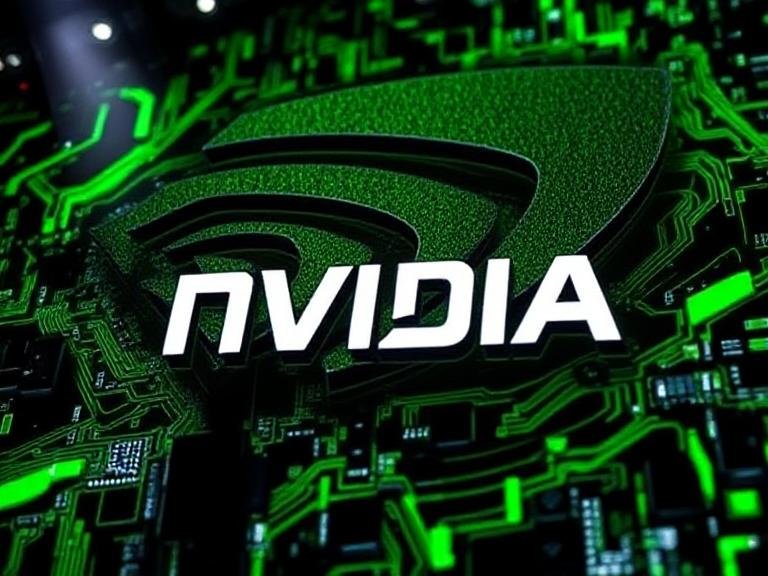
China’s AI Race Goes Local — and Nvidia Is Paying the Price
What started as a temporary export hurdle has turned into a long-term strategic challenge for Nvidia. Once the undisputed leader in China’s AI chip market, the company is now at the heart of a deepening geopolitical tug-of-war between the United States and China — and the consequences are beginning to show.
Facing strict U.S. export controls on high-performance AI hardware, Nvidia responded by designing a downgraded version of its flagship H100 GPU: the H20, a China-specific chip built to comply with American regulations. But even that workaround didn’t last long.
The U.S. government later blocked the H20 as well, cutting off one of Nvidia’s last legal channels into the Chinese market. After months of negotiations, the Biden administration granted limited approval for H20 sales — but by then, the damage was already done.
Market Share Slipping to Chinese Rivals
According to a recent analysis by Bernstein, a global equity research and brokerage firm, Nvidia’s dominance in China’s AI chip market is eroding fast.
The firm predicts that Nvidia’s market share in China will drop to 54% in 2025, down from 66% in 2024 — and that’s assuming no further changes to U.S. policy.
“U.S. export controls have created a unique opportunity for domestic AI processor vendors,” Bernstein noted, “as they are no longer competing with the most advanced global alternatives.”
The report forecasts a dramatic shift: China’s AI chip localization rate — the share of domestically produced processors — will surge from 17% in 2023 to 55% by 2027.
In other words, Nvidia isn’t just losing sales — it’s losing a generation of market momentum.
Homegrown Champions Rise
With access to cutting-edge foreign chips restricted, Chinese tech firms and state-backed projects are turning to local suppliers to power their AI ambitions.
Key beneficiaries include:
- Huawei — whose Ascend series of AI chips is now being adopted in major data centers
- Cambricon — a leading designer of AI accelerators for cloud and edge computing
- Hygon — backed by the Chinese government, producing high-performance CPUs and AI processors
These companies are no longer just backups — they’re becoming strategic pillars of China’s tech independence.
And while U.S. restrictions aimed to slow China’s AI progress, they may have done the opposite: accelerating the rise of a self-sufficient semiconductor ecosystem.
A Calculated U.S. Move: Letting Nvidia Back In — But Only Just
In a surprising twist, U.S. officials recently allowed Nvidia to resume limited H20 shipments to China. But the decision wasn’t about supporting American business — it was about containing Huawei.
David Sacks, the White House’s AI and crypto czar, confirmed the strategy in an interview with Bloomberg:
“There is a compelling argument here that you just don’t want to hand Huawei the entire Chinese market when Nvidia is capable of competing for a big slice of it with a deprecated, less capable chip.”
Translation: Even a weakened Nvidia is seen as a counterbalance to Huawei’s growing influence — especially in sectors tied to national security and infrastructure.
Trust Issues — But Demand Remains
Despite the political tensions, Nvidia’s chips remain in high demand across China — even within sensitive sectors.
Chinese regulators have recently scrutinized Nvidia over allegations of backdoors in its hardware, raising concerns about data security. Yet, paradoxically, China’s military and defense-linked research labs are still actively seeking ways to acquire Nvidia GPUs, often through third-party channels.
This contradiction highlights the reality: China wants to reduce reliance on U.S. tech — but it can’t do it overnight.
What’s Next for Nvidia?
The company finds itself in a difficult position:
- In China: It’s fighting not just regulatory walls, but a fast-evolving domestic industry.
- In the U.S.: It’s being used as a geopolitical tool, not just a tech leader.
- Globally: Its brand is stronger than ever — but its access to one of the world’s largest AI markets is shrinking.
Nvidia’s ability to innovate won’t be questioned. But its future in China may depend less on technology — and more on diplomacy, policy, and timing.
✅ Final Thoughts
The chip war between the U.S. and China is no longer just about technology.
It’s about control, security, and economic sovereignty.
And while Nvidia remains a powerhouse in AI hardware, its experience in China shows a hard truth: no company is too big to be caught in the crossfire of global politics.
As China builds its own AI ecosystem, the question isn’t just whether Nvidia will return to dominance —
but whether there will still be a place for it when it does.





